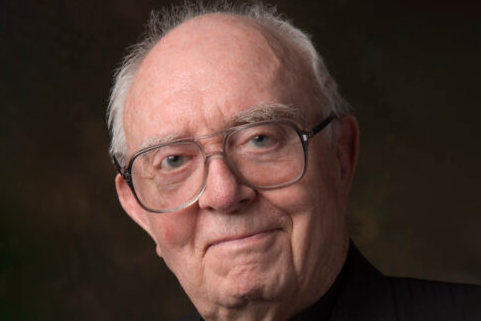Direct Entry Master of Science in Nursing student Evonne Evien was studying in the library with a friend when she got an email about upcoming elections for the Graduate Student Organization. She noticed an open position and decided to put her name in the mix.
“I figured we had the opportunity to really make some changes for the grad school population,” Evien says.
Her instincts have proven correct; just weeks later, Evien became the vice president of the GSO and one of three nurses to serve on the four-person board of officers alongside President Cherise Edwards and Logistics Chair Alexis Romo. Through their leadership positions, these nurses are taking skills learned at the bedside and applying them outside the hospital.
“Nursing has helped our ability to communicate with more than just patients; we are more effective at communicating with our advisers, our board of directors and people at every level of the university,” Edwards says.
Founded in 2004, the GSO serves as a liaison between university administration and the graduate student population. It’s an organization somewhat akin to what Marquette University Student Government is for undergraduates: a forum for students to offer feedback, address concerns and facilitate gatherings with their fellow classmates. Meetings are held monthly, and all graduate students are considered members by virtue of their enrollment.
When Edwards heard about the organization, she saw it as an effective vehicle for improving the graduate student experience. Edwards has three children and volunteers on the executive board for their school; her tenure there gave her clarity about what she wanted to build with the GSO.
“We have so many graduate programs and we don’t want each one to be in a silo by itself,” Edwards says. “We want to create a graduate school community where we can come together and hang out. That’s been the main thing; trying to connect people and make them feel welcome.”
Some of the GSO’s top priorities include finding more efficient and cost-effective ways for students to commute to campus, improving accessibility for student health care and creating opportunities for learners from different programs to network.
The GSO is also working on creating a dedicated infrastructure for student success that includes access to career support, mental health resources and more.
“In nursing, we are taught to treat the cause of problems, not just the symptoms,” Evien says. “Now we’re handling policy, and we’re figuring out what the sources of issues are and how we can prevent them from happening instead of just putting a band-aid on them.”
“Strong, active GSO leadership is an essential part of creating a top-notch graduate school experience,” says Dr. Doug Woods, dean of the Graduate School. “The GSO has been incredibly responsive to student needs and is proactive about solving problems. This year’s board has carried on a two-decade tradition of responsible, efficient governance.”
This group of GSO officers stands out for reasons beyond its preponderance of nurses. The 2023-24 board is composed entirely of students of color. Edwards and Evien are both African American, Romo is Hispanic, and communications officer Shamudra Dey, a biomedical engineering student, is from Bangladesh.
Diverse representation makes for a more inclusive governance structure, believes Edwards, who says it’s her goal to make all students feel welcome at Marquette.
“I honestly feel like students of color feel comfortable being themselves and approaching us,” Edwards says. “We have students coming up to us and saying, ‘I feel OK about bringing this to your attention because you look like me and I know you care.’ It made all of us feel great.”
The graduate student experience is often much different than the undergraduate one. Graduate students often span a much greater age range, are far more likely to take classes online and many of them work at least part-time in conjunction with their degree programs. Evien, for instance, takes classes at Marquette Nursing’s Pleasant Prairie campus, which is a 45-minute drive from Milwaukee and instructs students in a hybrid-online format. Her clinical site is in northern Illinois.
Edwards lives in the Brookfield area and commutes to campus on Wednesdays to take classes and serve as a research assistant. She has classmates who live in the Chicago metro area who have round trip commutes that take several hours.
“People don’t think the same, people don’t communicate the same, and I think that nursing has helped us bridge some of those gaps with students, advisers and different people no matter what position they have,” Edwards says.
Leading the GSO is more than a professional mission for Edwards; it’s also personal. Her kids are 15, 13 and 11 years old and she wants to set a good example for them through her graduate school experience.
“My children always tell me, ‘Mom, I’m so proud of you. I look up to you because not all moms do this,’” says Edwards, who jokes that she’s an unpaid Uber driver for her kids when she is not in class or on her hospital floor. “It’s important to me that they see me working as hard as I can to better other peoples’ lives, whether through nursing or some other way.”
Even though Edwards and Evien are graduating at year’s end, the impact they made on graduate life at Marquette will last well beyond their time.



